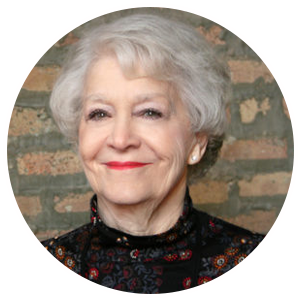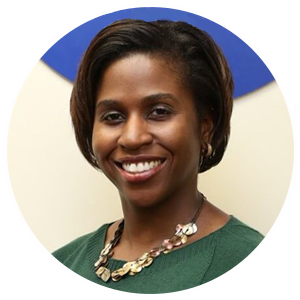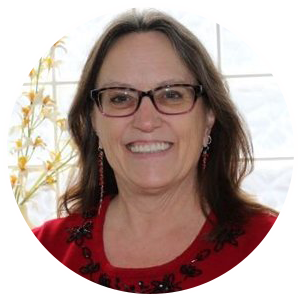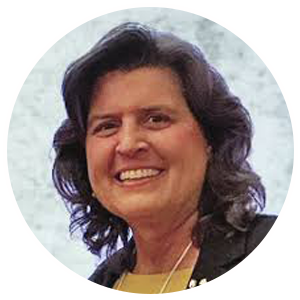
Virtual Series: Moving Forward into the Unknown
The Nebraska Department of Education’s 2020 Nebraska MTSS Summit, “Moving Forward into the Unknown,” featured sessions to help schools promote success and wellness for students and staff.
WEEK 1: Equitable Opportunities for All
Creating & Sustaining Equitable Systems of Support for All Students
Celeste Malone
Mental Health: Policy Issues
Stacy Skalski
Addressing SEL Through Data-Driven MTSS to Support the Whole Child
Jaime Harris
WEEK 2: Engaging and Strengthening Partnerships
Trauma Informed Care/Restorative Practices
Lauren Evanovich
Family, School & Community Partnerships
Sara Kupzyk and Amanda Witte
WEEK 3: Adults as Change Agents
Adult SEL
CASEL: Ruth Cross
Climate: Supporting Adult SEL
Javier Castellote
WEEK 4: Creating a Climate of Support
Climate: Collaboration to Support Students
Mary Louise Hemmeter
DATE: 9-1-20
TIME: 4:30-5:30 p.m.
AUDIENCE: Instructional Staff
LEVEL: Pre-K, Elementary
Climate: Collaboration to Support Students
CASEL: Pat Conner
DATE: 9-1-20
TIME: 4:30-5:30 p.m.
AUDIENCE: Instructional Staff
LEVEL: Middle, High School
Climate: Supporting All Staff
Adam Welcome
WEEK 5: Prioritizing the Core
Core/Tier One: Social, Emotional & Behavioral
Lise Fox
DATE: 9-8-20
TIME: 4:30-5:30 p.m.
AUDIENCE: Instructional Staff
LEVEL: Pre-K, Elementary
Core/Tier One: Social, Emotional & Behavioral
Dominique Smith
DATE: 9-8-20
TIME: 4:30-5:30 p.m.
AUDIENCE: Instructional Staff
LEVEL: Middle, High School
Strengthening the System: Problem Solving
Heather Robbins
WEEK 6: Putting the Pieces Together Moving Forward
Creating the Infrastructure for Intensified Supports
Daniel Rector
System Alignment/MTSS Support
NeMTSS Team
Presenters

Javier Castellote, MA, is a Training Specialist at Project Harmony and has been working with families across cultures as well as training professionals and the community at large for the past 11 years. In his role as a Training Specialist, Javier trains teachers, nurses, child welfare workers, and other professionals about child abuse laws, reporting procedures, and prevention. Javier is a certified Darkness to Light facilitator. Prior to working as a trainer, Javier worked with immigrant and refugee families within Omaha’s largest public school system helping families through the process of acculturation and integration into the community.

Pat Conner is a Senior Policy and Practice Consultant for CASEL (Collaborative for Academic, Social, and Emotional Learning). As a consultant with CASEL, she provides technical assistance and support to states involved in the Collaborative States Initiative (CSI). An educator for over 34 years, Pat recently retired from the TN Department of Education as the Executive Director for the Office of Student Support. In that role, she provided oversight to 146 districts on alternative education, Family Resource Centers, school climate, Project AWARE school based mental health initiative, trauma-informed schools, and extended learning. Her belief is that all children deserve to feel safe, emotionally and physically, at school and that families and the community play an important role in making schools safe places to learn and grow.

Ruth Cross is Senior SEL Consultant and Trainer for CASEL. She received her MA in Educational Administration and Leadership. Her responsibilities include supporting school districts to implement systemic social and emotional learning district and school wide, which includes consulting with Chicago Public Schools, one of the large school districts participating in the Collaborative District Initiative, coaching smaller districts in DuPage County that partner with CASEL and the DuPage Regional Office of Education, and partnering with the Consortium for Educational Change (CEC) to implement SEL in Central Illinois. She is also a consultant for the CASEL Collaborative States Initiative. Her experience in working on state policy includes co-chairing the committee that wrote the SEL standards and serving as a member of the Illinois State Board of Education for three years.
Prior to joining the CASEL staff, Ruth co-chaired the CASEL-IC Advisory Council, whose primary goal was to assist schools with the implementation of comprehensive, research-based social and emotional learning programs in Illinois. From 2003-2007 she was co-chair of the School Policy and Standards Committee, which was created by the Children’s Mental Health Act of 2003 as a part of the Children’s Mental Health Partnership. Until 2007 she worked for 34 years as a teacher, assistant principal, principal, and assistant superintendent. As a building principal, she was instrumental in the implementation of programs that enable students to acquire skills to improve interpersonal relationships and prevent conflict. Ruth continues working to expand social and emotional learning in Illinois by presenting administrator academies and leading workshops around the state on the importance of teaching social and emotional learning and adhering to the Illinois social and emotional learning standards.

Dr. Lauren Evanovich is a Research Assistant Professor at the University of South Florida in the Florida Center for Inclusive Communities, on the Florida Positive Behavior Interventions and Supports grant (FLPBIS). Dr. Evanovich’s research interests include multi-tiered systems of support (MTSS) with a focus on Tier 2 and Tier 3 academic and behavioral interventions for students with and at-risk for emotional and behavioral disorders; reducing the use of exclusionary practices; and the integration of restorative practices within an MTSS framework.

Dr. Lise Fox is a professor in the Department of Child and Family Studies at the University of South Florida and the Co-Director of Florida Center for Inclusive Communities: A University Center of Excellence in Developmental Disabilities. She is one of the developers of the Pyramid Model for Promoting Social and Emotional Competence in Infants and Young Children and is the principal investigator of the National Center for Pyramid Model Innovations (www.challengingbehavior.org).

Jaime Harris is a school psychologist with over 15 years of experience supporting the needs of students, parents and educators helping to build multi-tiered systems of support for students with a particular interest in social emotional learning and mental health. She was a national nominee and was awarded the Wisconsin School Psychologist of the Year in 2014. Jaime is the co-founder of eduCLIMBER, an award-winning MTSS data collaboration/visualization tool, and a senior product manager at Illuminate Education where she has consulted and trained districts across the nation to build capacity in their understanding of MTSS through practical applications of data.

Dr. Mary Louise Hemmeter is a professor of Special Education at Vanderbilt University. Her research focuses on effective instruction, supporting social emotional development and addressing challenging behavior, and coaching teachers. She has directed numerous projects funded by the US Departments of Education and Health and Human Services. Through her work on the National Center on the Social Emotional Foundations for Early Learning and funded research projects, she was involved in the development of the Pyramid Model for Supporting Social Emotional Competence in Young Children and a model for coaching teachers to implement effective practices known as Practice Based Coaching. She is a co-author on the Connect4Learning Early Childhood Curriculum and the Teaching Pyramid Observation Tool. She was co-editor of the Journal of Early Intervention and President of the Council for Exceptional Children’s Division for Early Childhood. She received the Merle B. Karnes Service to the Division Award and the Mary McEvoy Service to the Field Award.

Dr. Kupzyk is an Assistant Professor in the Applied Behavior Analysis Master’s Program at the University of Nebraska at Omaha (UNO). She completed her doctoral training in school psychology at University of Nebraska Lincoln (UNL) and her internship and postdoctoral fellowship at the Munroe-Meyer Institute (MMI). She is the Primary Investigator for a personnel preparation grant “Interdisciplinary Personnel Preparation in Systemic School-Based Behavioral Intervention” through the Office of Special Education and Rehabilitative Services, Department of Education. Kupzyk is a certified behavior analyst and licensed psychologist in Nebraska and has provided behavioral health and academic intervention services including parent training and school consultation in pediatric clinics. She has conducted research and authored papers on academic interventions, parent tutoring, school consultation, and early intervention with diverse families. Dr. Kupzyk’s research interests include (1) caregiver involvement in learning/home-school collaboration (helping practitioners and teachers give parents guidance for helping their children with basic academic skills), (2) strategies for preventing and intervening to address problems with treatment integrity (i.e., implementing plans or treatments as intended), and (3) school consultation for children with behavioral concerns.

Celeste Malone, PhD, MS, is an associate professor and coordinator of the school psychology program at Howard University. She received her PhD in school psychology from Temple
University and completed a postdoctoral fellowship in child clinical and pediatric psychology at the Johns Hopkins University School of Medicine. Prior to obtaining her doctorate, Dr. Malone received her master’s in school counseling from Johns Hopkins University. Her primary research interest relates to multicultural and diversity issues embedded in the training and practice of school psychology. Specifically, Dr. Malone focuses on multicultural competence, the ability to work effectively with diverse populations through the application of cultural knowledge and to demonstrate awareness of and sensitivity to cultural issues. The overarching themes of her research are as follows: 1) development of multicultural competence through education and training, 2) diversification of the profession, and 3) the relationship between culturally competent practice and PK-12 student outcomes. Related to her interest in professional issues in school psychology, Dr. Malone has continuously held leadership positions in psychology professional associations. She currently serves on the National Association of School Psychologists (NASP) Board of Directors as the strategic liaison for the social justice strategic goal. In that capacity, Dr. Malone works closely with NASP boards and committees to develop and implement programs and activities to address social justice issues in school psychology and education. Additionally, Dr. Malone is an elected member of the American Psychological Association (APA) Board of Educational Affairs, the governance group which develops policies for education and training in psychology.

Bio coming soon.

Daniel Rector currently serves on the leadership team for Missouri Schoolwide Positive Behavior Support as a statewide coach and district facilitator. In this capacity, he supports schools and districts across the state with the development and implementation of sustainable MTSS frameworks. Prior to this role, Daniel served as a middle school science teacher, a middle school building administrator, and then as a regional improvement consultant with the Heart of Missouri Regional Professional Development Center. Daniel is currently pursuing his doctorate degree in educational leadership and policy analysis with a graduate certificate in applied behavioral analysis. In addition to supporting schools in MTSS and Positive Behavioral Interventions and Supports, Daniel is passionate about organizational behavior management, trauma-informed educational systems, and combating opportunity gaps in educational systems.

Heather Robbins has been working in schools since 1985, holding a B.A. and an M.A. in education. She has worked with students at all levels, first teaching in a residential treatment center followed by serving as a teacher and then Behavior Support Specialist on the Navajo Reservation. While working for the Bureau of Indian Education, Heather became an early adopter of Positive Behavior Intervention and Support (PBIS) practices and began working for Dr. Jeffrey Sprague at the Institute on Violence and Destructive Behavior (IVDB), University of Oregon, guiding multiple schools to full implementation. Her present area of interest is effective professional development in PBIS at the school-wide, classroom, and individual student level. Heather currently consults with districts/ schools in several states continuing her efforts in positive behavior support, youth violence prevention, and school safety. Heather’s other passions include reading, fishing, and playing with her dogs.

Stacy Kalamaros Skalski, Ph.D. is the Director of Professional Policy and Practice for the National Association of School Psychologists. In this capacity, she works collaboratively with national and state leaders, education and mental health professionals, and public officials to advocate for the alignment of research, policy and practice at the state and federal level. Her primary focus is on promoting high quality educational practices and student services, and comprehensive coordinated school-based mental health services. Dr. Skalski has over 25 years of professional experience in the field of school psychology having previously served as the Coordinator of Mental Health Services for the Douglas County Schools (CO), as an Assistant Research Professor at the University of Colorado-Denver, and as a school psychologist practitioner for the Douglas County and Cherry Creek Schools (CO). Dr. Skalski received her B.A. in Psychology (Hanover College, 1985), her M.A. in Educational Psychology (University of Denver, 1986) and her Ph.D. in School Psychology (University of Denver, 1991).

Dominique Smith is the Chief of Educational Services and Teacher Relations at Health Sciences and Middle College (HSHMC) located in San Diego, CA., and a consultant for Corwin. Dominique has helped transform HSHMC to become a restorative school with his efforts in building relationships with student and hearing student voice. His focuses on school wide mind shifts to restorative practices and school equity have taken him across the world to help schools make change. He has published books with authors Douglas Fisher and Nancy Frey, “Better than Carrots and Sticks” and “Building Equity, Policies and Practices to Empower All Learners,” and “Engagement by Design”. In 2014 Dominique was the recipient of the National School Safety Advocacy Award. Dominique focuses on creating a well-rounded school climate to allow the growth of all students to become the best student they can be. He believes students have the right to feel like they have a future and can be successful no matter any situation.

Adam has been a teacher, Principal and Director of Innovation for a large school district in California with 35,000 students. He’s also the author of four books and travels the country speaking and working with educators.

Amanda Witte’s work is focused on family-school partnerships, early learning, and rural education. In her role as research assistant professor, she serves as UNL project director for the Nebraska Multi-tiered System of Support (NeMTSS), a program that empowers schools to support and prepare all students for success by systematically delivering a range of high-quality instruction tailored to meet their needs. Witte has also contributed to publications and presentations to promote understanding of the benefits of family-school partnerships. Witte has been instrumental in developing and implementing family-school partnership training and facilitating ongoing coaching. She provides leadership for federally-funded and locally-funded research studies investigating factors that promote early learning and development, family-school partnership interventions to support social-emotional learning outcomes for children, and more recently, the effects of COVID-19 on parent and educator practices and stress. She received her master’s and doctoral degrees in educational psychology from the University of Nebraska-Lincoln.

